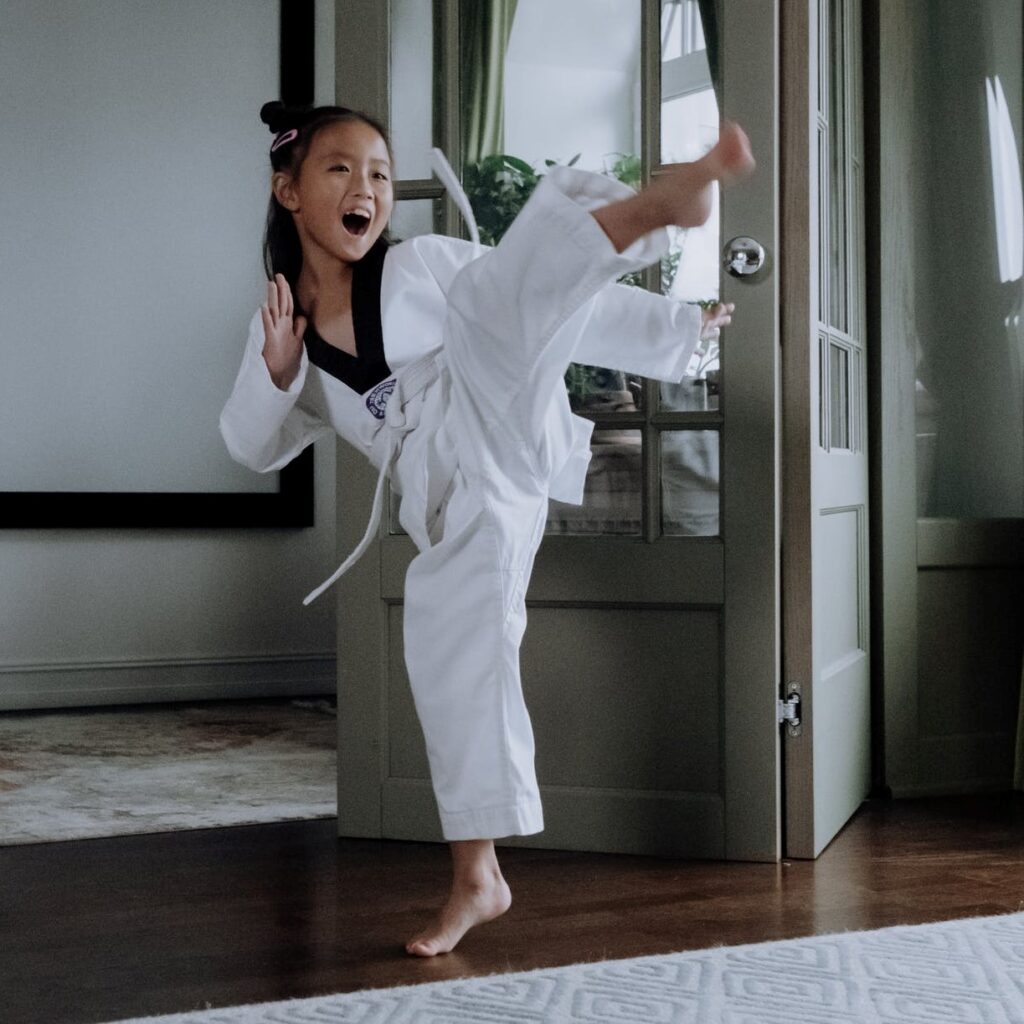
One of the most popular suggestions for someone who wants to start being responsible for her safety is to learn a martial art. It’s an especially common recommendation for young girls who can’t carry weapons due to legal or school policy restrictions, as well as for anyone who can’t or doesn’t want to use weapons for other reasons.
It’s a great idea, and one that I really like for all sorts of reasons. However – and you know me, there’s always a however – it’s an answer that has several caveats. Like many self defense solutions, starting to train in a martial art or attending a seminar is only a start. A good start, but only a start nonetheless. You will need to commit to learning and practicing for a significant amount of time before you can rely on hand-to-hand techniques to successfully defend yourself from physical attacks.
For one, going over a skill for a few hours or even a few days doesn’t mean you’ll remember how to perform it weeks or months later. In order to put that skill into your repertoire, you need many practice repetitions, preferably ones that are relatively recent to when you need to call on them for real. Even the simplest skills are forgettable if you don’t use them often, and more complicated ones become stilted if you don’t work on them often enough to make the movements automatic. Going to an afternoon or weekend class is helpful to introduce you to various concepts, but you will at least need to review them afterwards for them to be useful. Better yet, you should commit to training on a regular basis to learn the skills well and keep them from getting rusty, particularly if you want martial arts to be one of your primary self defense strategies. Over time, you may find new moves easier to pick up and remember, but generally only because you have a base in how your body works and how similar types of moves work.
That time is also necessary because it can take years to get good enough at any martial art for your skills to be effective against someone who is significantly larger or stronger than you. For those of us who are relatively petite, that can include pretty much anyone. Even though some arts are more suited than others to optimizing a smaller, weaker person’s ability to prevail in a fight, none of them are magical. In fact, in many cases, they require a perfection in execution that is only possible when you have had the opportunity to learn and re-learn the relevant skills and practice them again and again against opponents who are actually larger and stronger than you. With a very large disparity in size or strength, you may not be able to be fully successful at all in completely stopping an assault, though you can narrow those gaps with higher levels of skill, and while you may not ultimately win a struggle, the more you train, the more you will be likely to discourage and slow down an attacker.
As you train, you need to be careful about martial arts and techniques that are only practiced against cooperating partners. They won’t work the same against someone who is trying to win or someone who wants you to lose…and those aren’t always the same thing. It’s true that you need someone who won’t fight back when you’re first learning how to perform a skill, but eventually you need to test against someone who doesn’t want to make it easy for you. That doesn’t mean that you need to go no-holds-barred and risk severe injury or demoralizing losses in training, but you do need to have time working with a partner who isn’t just letting you do the thing. You need to see when and how your skills will fail because someone else got a say about whether or not you will succeed. With some programs, it can be difficult to tell if you’re really getting that kind of resistance, so you’ll need to pay careful attention to whether your opponents are reacting with perhaps a little bit too much drama for what you know you’ve done if you’re honest with yourself. This is where watching the occasional fight sport match can be useful, to help you understand what it looks like when someone isn’t there to make the other person look and feel good.
But! Don’t be discouraged if you can only devote limited time to studying a martial art or if you’re afraid the one you choose might not be training you in the best possible way to defend yourself. Whatever you choose, for however long you do it, you will reap benefits for your investment. You will start building confidence, start moving like someone who is not an easy target. You will start believing that you can and must fight back if someone wants to harm you, and that any fighting at all is better than none. You will start improving your physical conditioning and strength, which themselves can give you an edge in an attack against you. And not for nothing, you will start discovering a community who will make your life more enjoyable, and inspire you to fight harder to preserve it. Just remember to be realistic about how far the skills you’re learning will take you, because no martial art is a quick, easy way to guarantee your safety.




